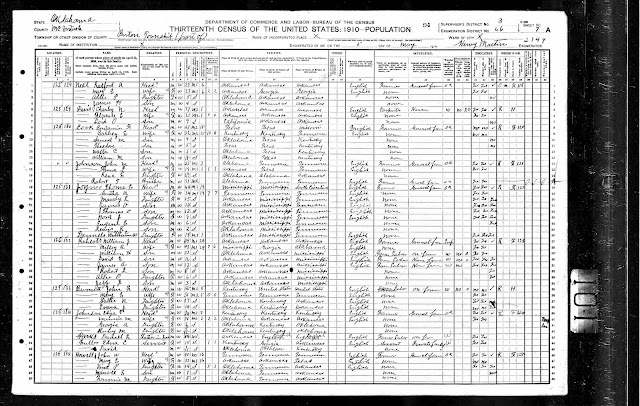Ken Neal Letter to Patrick James Neal
 |
| Patrick James Neal, April 9, 2012 |
April 8, 2012
Tomorrow is the big day when you make your
debut as my seventh grandchild and third grandson. As of this writing, I don’t
know your given name, but I know you will be a Neal, so I am talking to you
tonight about your Neal background.
I hasten to say I could tell you of our
lineage on my mother’s side and I am sure your mom has similar information on
your antecedents on either side of her family.
Yet the Neal surname is one you will carry all
your life and so it’s fitting you know something about those old geezers who
carried the name before you.
Armed with some of my memories of what my
father told me about them, your dad and I tracked the Neals in a little more detail
We have some information
about Neals for seven generations back of you. I expect your dad to preserve this note in
some form so that you can read it as an adult some day. It won’t be long until I
am 77 and my health is such that I fear I won’t be around to observe your
development for many years.
But I expect great things from you, not so
much in accomplishments in the usual material pursuits but in your becoming a
man of integrity, understanding and compassion.
The earliest Neal we can find was John Henry
Neal, who we think was born in central Arkansas around 1815. We can’t find his
parents, so our search has ended there. Yet we know Neal is a Scottish name and we
know that the Scot-Irish came over in several waves from the old country and so
we are sure his folks were
among those who moved down the Appalachian mountains into
Arkansas.
Maybe your Dad will have learned more by the
time you read this.
Anyhow, John Henry had a son he also called
John Henry, born in the area of Logan County, Arkansas in about
1845.
John Henry the second had four wives, three of
them dying before him. I can’t find any of his other children, but he sired a
fellow named Radford Andrew Neal by an Indian named Melissa Ussery on Magazine Mountain near Paris, Arkansas, in 1880. We think
Melissa died giving birth to Radford, who, you might have guessed, is my
grandfather.
John Henry the second died in 1910 where he
lived with his daughter, my grandfather’s half sister. We have remnants of a
letter from her telling her lineage and relationship to Radford. My father knew
her, referred to her as his Aunt Stella.
Radford Andrew had nine children, including my
father, born Rufus Leslie Neal, but later changed to Fred R.
Neal. I, of course, am the offspring of Fred and
your dad is my son.
Enough of the lineage. I give you this background to express a
couple of points. First, all of these people came from very
humble situations. The
census says the first John Henry could neither read nor write. John Henry the
second could barely read. Radford had meager schooling but by all accounts was
brilliant, if uneducated, man. Fred had an 8th grade education but was self-educated and very much a
knowledgeable guy. I know,
he was my father.
I, have a bit better education, holding a
college degree from the University of Tulsa. I was the first of my extended
family to get a degree. Your dad is easily the best educated and the
smartest Neal yet.
The real reason for this treatise is to point
out to you that each generation of Neals built on the previous generation. I know that each of these
people wanted their sons to do better than they did. I inherited this desire
from my father and I know he got it from his father.
Therefore, I submit that each generation
of Neals got better than their forebears and I expect the same of you
and your brother John and your sister Catherine.
Coincidentally, I am sure your mom, a great
lady, feels the same as I do and that she benefited from her parents and
background similarly.
My regret is that I won’t be around to see you
take the baton from your dad and exceed his great accomplishments in
life.
Your eyes are probably glazed over by now but
I have a call in to your dad to learn of the birthing schedule tomorrow so I had
to pontificate a bit. I am very pleased that there will be another
Neal to carry on the name and to improve on it. Your ancestors were by no means great men, but
those illiterate guys back there in Arkansas were never in jail, and one, John
Henry the second, was a
young cavalry recruit in the Union army out of Arkansas. Get your dad to take
you to visit his grave some time!
I
presume a bit here. I would have liked to have a letter from my grandfather and
so hope you will some day like it. I have written quite a lot over the years and
I am sure your dad will fill you in on those scribblings.
We
eagerly await your arrival!
Love, Grandpa Neal
P.S.
It’s the morning of the
10thand you
are more than we had hoped for. You are a husky, 8-pounder with all your
appendages, ready to take on the world. We’re betting on
you!












